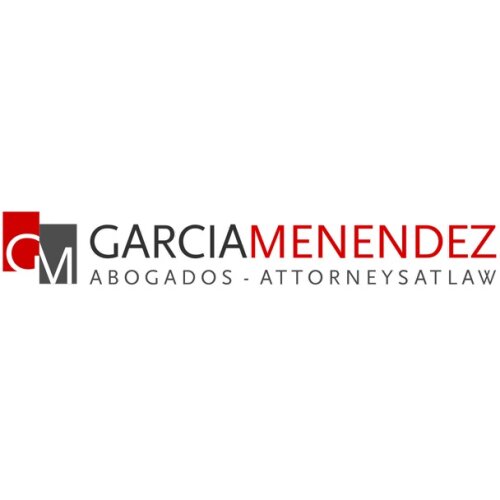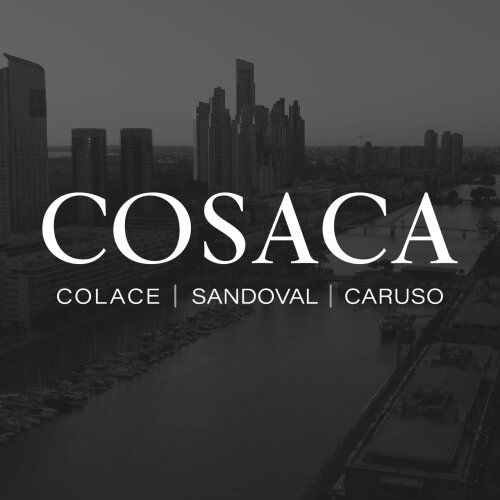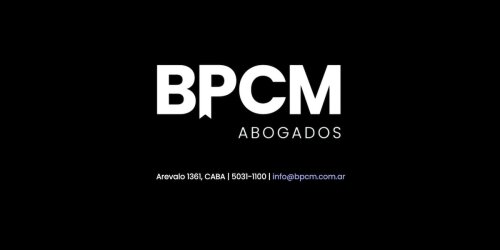Best Nonprofit & Charitable Organizations Lawyers in Buenos Aires
Share your needs with us, get contacted by law firms.
Free. Takes 2 min.
List of the best lawyers in Buenos Aires, Argentina
About Nonprofit & Charitable Organizations Law in Buenos Aires, Argentina
Nonprofit and charitable organizations in Buenos Aires, Argentina, play a crucial role in serving various societal needs, ranging from education and health care to cultural and environmental issues. These organizations are generally formed to provide services and support to individuals and communities without the intention of making a profit. In Buenos Aires, nonprofits are governed by a distinct set of laws and regulations which dictate their formation, operation, and dissolution. Legal stipulations surrounding tax exemptions, corporate governance, and public matters are integral to their functionality. Understanding these laws is essential for ensuring compliance and the successful management of a nonprofit organization.
Why You May Need a Lawyer
Engaging a lawyer specialized in nonprofit law can be crucial for several reasons:
- Formation: Establishing the legal structure, drafting articles of incorporation, and setting up a governing board require legal expertise.
- Compliance: Ensuring adherence to local, provincial, and national regulations, including obtaining necessary licenses and permits.
- Taxation: Navigating tax exemptions and filing requirements can be complex without professional guidance.
- Contracts: Drafting and reviewing contracts for funding, partnerships, and service delivery to protect organizational interests.
- Intellectual Property: Protecting the organization’s brand and materials through trademarks and copyrights.
- Disputes: Resolving internal or external disputes, whether employee-related or contractual.
Local Laws Overview
Nonprofit and charitable organizations in Buenos Aires are subject to several key legal frameworks:
- Registration and Formation: Organizations must be registered with the Inspección General de Justicia (IGJ), which oversees their governance and legal status.
- Taxation: Nonprofits may qualify for tax exemptions but must comply with the national tax code requirements and submit regular reports to maintain this status.
- Regulatory Compliance: They must adhere to the rules on transparency, accountability, and good governance practices, which include regular board meetings and the publication of financial statements.
- Employment Law: Nonprofits must comply with labor laws, including fair treatment of employees and volunteers, wage regulations, and workplace safety.
Frequently Asked Questions
What legal structure should our nonprofit adopt?
Most nonprofits in Buenos Aires choose to form as Civil Associations or Foundations, each with specific legal requirements and governing bodies.
How can we ensure our nonprofit is tax-exempt?
Your nonprofit must apply for recognition from the Argentine tax authority (AFIP) and regularly submit financial reports to maintain tax-exempt status.
What are the reporting requirements for nonprofits?
You are required to submit annual financial statements and activity reports to the IGJ to comply with Argentine regulations.
Can a nonprofit make a profit?
Nonprofits are allowed to generate income, but it must be used entirely to further the organization's objectives rather than distribute it among founders or members.
What is the role of the board of directors?
The board oversees the strategic direction and financial health of the nonprofit, ensuring that it adheres to its mission and legal obligations.
How do we handle intellectual property developed by the organization?
Seek legal advice to register for trademarks or copyrights to protect the organization’s intellectual assets, such as logos or publications.
Are there restrictions on international funding?
Nonprofits can receive international donations, but they must comply with financial transparency laws and regulations concerning foreign transactions.
How do we resolve employment disputes?
Legal counsel can assist in addressing disputes, ensuring compliance with employment contracts and Argentine labor laws.
Can our nonprofit engage in political activities?
Nonprofits must be cautious about political activities, as they risk endangering their tax-exempt status by engaging significantly in political campaigning or lobbying.
Is volunteer labor regulated?
Yes, volunteers’ engagement must comply with employment laws, ensuring fair treatment and safe working conditions, without labor law infringements.
Additional Resources
For further assistance, consider exploring the following resources:
- Inspección General de Justicia (IGJ): The governmental body responsible for overseeing the registration and regulation of nonprofits.
- Administración Federal de Ingresos Públicos (AFIP): The national tax authority that handles taxation and exemptions.
- Federación de Fundaciones Argentinas (FEDEFA): An organization providing support and resources for foundations across Argentina.
- Centro Nacional de Organizaciones de la Comunidad (CENOC): Offers guidance for community organizations, including legal advice and training.
Next Steps
If you require legal assistance, consider the following steps:
- Identify Your Needs: Clearly define the legal issues or challenges your nonprofit is facing.
- Research Legal Professionals: Look for lawyers or firms specializing in nonprofit and charitable law in Buenos Aires.
- Consultation: Schedule a meeting to discuss your organization’s needs and how the lawyer can assist you.
- Ask for Case Experience: Inquire about the lawyer’s experience and success in handling cases like yours.
- Agree on Terms: Discuss and agree on fees, project timelines, and expectations before commencing work.
Taking these steps can ensure that you receive the legal advice and support necessary for your nonprofit to thrive within the legal framework of Buenos Aires, Argentina.
Lawzana helps you find the best lawyers and law firms in Buenos Aires through a curated and pre-screened list of qualified legal professionals. Our platform offers rankings and detailed profiles of attorneys and law firms, allowing you to compare based on practice areas, including Nonprofit & Charitable Organizations, experience, and client feedback.
Each profile includes a description of the firm's areas of practice, client reviews, team members and partners, year of establishment, spoken languages, office locations, contact information, social media presence, and any published articles or resources. Most firms on our platform speak English and are experienced in both local and international legal matters.
Get a quote from top-rated law firms in Buenos Aires, Argentina — quickly, securely, and without unnecessary hassle.
Disclaimer:
The information provided on this page is for general informational purposes only and does not constitute legal advice. While we strive to ensure the accuracy and relevance of the content, legal information may change over time, and interpretations of the law can vary. You should always consult with a qualified legal professional for advice specific to your situation.
We disclaim all liability for actions taken or not taken based on the content of this page. If you believe any information is incorrect or outdated, please contact us, and we will review and update it where appropriate.














